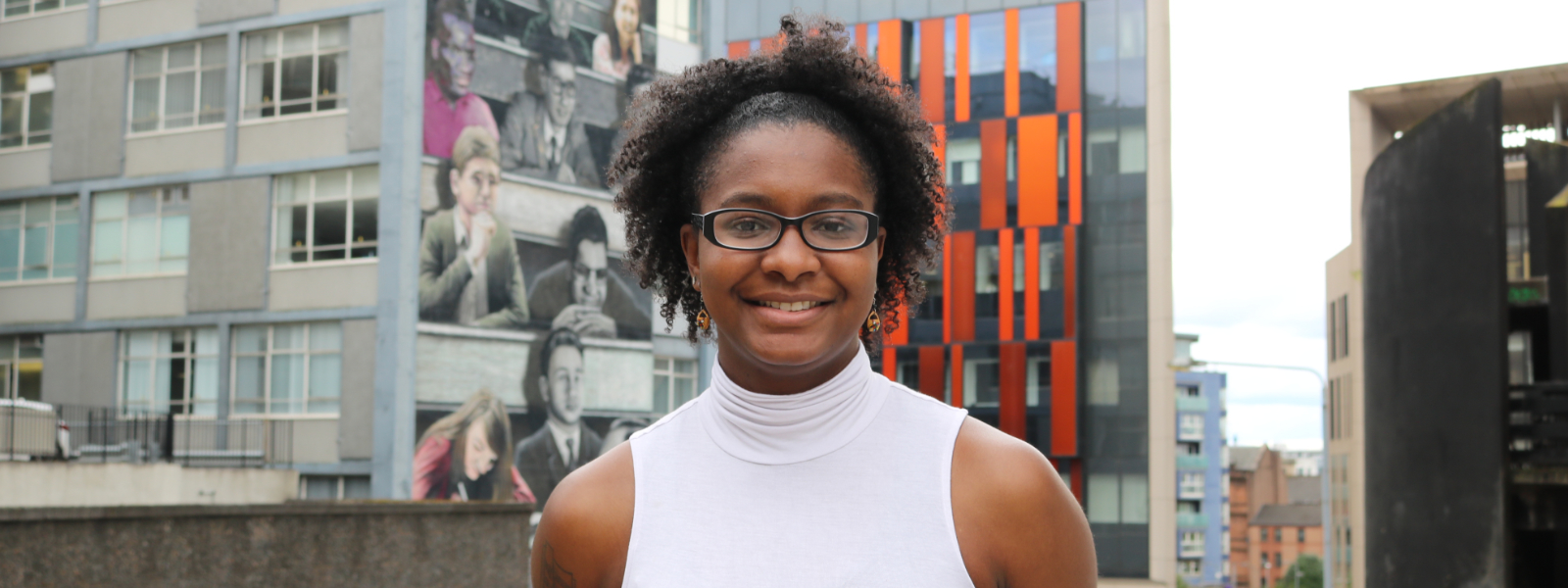
Cyndia, from Boonton, New Jersey, is a student on the MSc International Relations within Strathclyde's Department of Government & Public Policy
Tell us a little about your journey to studying the Masters in International Relations.
I received a BA in Criminology/Criminal Justice with a double minor in Legal Studies and Women’s Gender Studies. After my undergraduate I was in the process for a Federal position within the US, however Covid hit halfway through my application stage which added over two years to my process. I had always wanted to continue my education, so I decided to pursue international politics because of this delay and because of my minors at the undergraduate level which broadened my interest.
Tell us about the format of the programme. What were you doing week-to-week?
The MSc programme was three classes per semester for two days of the week. There were about 3-4 readings per class for each week, not including additional readings. To put it simply, I would spend the days I had classes reading those articles and taking notes. Then I would spend the remaining three days rereading those articles - to be prepared for class discussions – and completing upcoming assignments. I chose to leave weekends open to explore and relax. This process was reformed over my time as I began to understand and process the information easier.
The teaching has changed depending on the size of the class. For example, one class had a total of our students for the entire semester and was more aligned with PhD-style discussions. Other classes have been more of a lecture with 80+ students. While another course had about 12 students which involved constant conversations because of the differing viewpoints. However, I think they all have had a good balance of allowing for the students to actively engage with each other due to group projects and small groups conversations. These allowed us to properly get to know each other in an academic and personal way.
What were the most enjoyable parts of the Masters?
Personally, coming from the states and not really having had the opportunity to leave, one of the most enjoyable parts would have to be the diverse cultures I was exposed to and the friends I made because of it. As far as theorists and theories, the post-positivist and critical theories would have to be my favourite. These challenge the mainstream theories and offers underlying issues that are omitted from the big three (realism, liberal, and constructivism). It questions how mainstream theories in IR reinforce and reproduce imbalances of power and offers alternative perspectives as to how they should be addressed in research.
My dissertation topic is explaining the determinants of violence against women; this is through an empirical-legal investigation of EU countries. I choose this topic because of the 2022 regression in federal legislation in the US; I wanted to evaluate how changes in legislation impact gendered violence. As a result of this, I was able to perform a comparative evaluation of legislative text across three years with each EU country; more specifically, I reviewed how three forms of national legislation, and the compliance of international soft law influences domestic violence against women.
How have you enjoyed living in Glasgow?
I enjoyed Glasgow because of University. I found many good friends through University societies and courses I had taken. Life at Strathclyde pushed me outside of my comfort zone, and allowed me to grow on a personal level.
What advice would you give to someone considering applying to the MSc International Relations?
I would say it was a little difficult to adjust to the academic system as an international student (especially the grading system). My advice is simple but effective: if you have any issues or questions, make sure you ask for help. I have seen many MSc students not ask for help or make assumptions about the assignments which hurt them overall. The lecturers, academic advisement and especially other MSc students will help you if you are confused, but they will not know unless you say something. This is something I had to learn as well, and the course became easier once I recognised this.
What would you like to do in the future? How do you feel the MSc has helped you prepare?
I would love to get into Policy Research and Analysis. My MSc programme allowed me to expand my experience within these two subjects on an international level. Due to this, I have recently obtained interviews and offers for a Social Researcher position within Washington DC and Policy Analyst positions across the US. This is specifically because of the experience I gained from the MSc, and I could not be more grateful.
